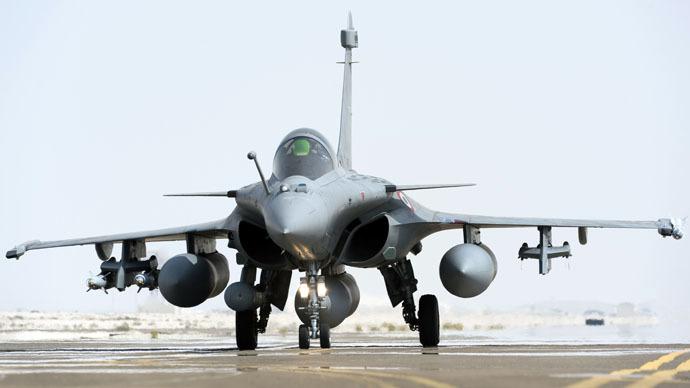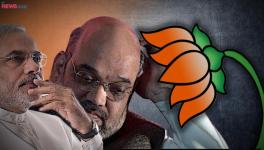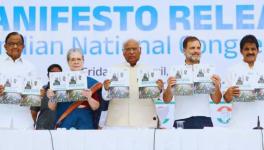Rafale Deal: Being Too Clever by Half

All the surveys and ratings cannot protect those who get weighed under their own lies and they also singe those who come to defend lies. As the story of Rafale gradually unravels, we are now witnessing some tough questions being posed to the Government. It is not about the quality of the fighter plane chosen after a long drawn out grueling procedure in 2012 at a base price of $10.2 bn (Rs 54,000 cr. at 2012 exchange rate) for 18 fly away condition purchase and 108 manufactured jointly with HAL through Transfer of Technology. The Indian Air Force was particularly pushing for this because Dassault could also help with upgradation of Mirage 2000 H fighter jets. Even the Bofors scam did not have to do with versatility of the artillery gun but the kickbacks involved. So here too the scandal concerns how a deal negotiated for manufacturing in India under ToT by the public sector Hindustan Aeronautics Ltd, with work share agreement reached in March 2014 between Dassault and HAL for 30-70 per cent share respectively, was cancelled, then a new deal negotiated for outright purchase of 36 jets in fly away condition in the name of “emergency”, and finally through the offset route Rs 29,000 cr. worth orders gifted to a corporate group notorious for having a number of red flagged accounts (loans not being repaid) and with absolutely no experience in military sector. Recall that if 36 jets were to be procured on an emergency basis but supplied only by 2019-22, then why was ToT part of the deal cancelled? Did the IAF not require more than 36 jets? IAF has repeatedly said that they need few more Rafael squadrons (each squadron has 18 jets)?
Dassault has now categorically said that they will manufacture in India provided the order placed is large enough. We do not know what the large number entails now. Furthermore, was the deal cancelled because of antipathy towards public sector and/or in order to accommodate a crony? Because it is only by cancelling the earlier done deal could the offset route be opened up to benefit a crony of the Government of Narendra Modi, not otherwise. The point is that the drive for privatizing the military sector, although covered by ideological reasoning often camouflages favour being granted to cronies. This will ruin country’s strategic autonomy and independent foreign policy.
The Indian Air Force Chief while defending the agreement for outright purchase of 36 jets went overboard and claimed that the price negotiated was lower than in the UPA negotiated agreement. He was shy sharing figures to prove this. But this claim was repeated by the Union Minister Nirmala Sitharaman who claimed that price negotiated was “definitely” lower. Which means that the unit price for 36 outright purchases were “definitely” lower than Rs 526.1 cr ($81 million) under the previous agreement, and therefore, Rs 59,000 cr value attached for 36 fighter jets, where unit price works out to be Rs 1570 cr is not the correct figure? A story in Times of India claims that unit price of 36 jets is Rs 707 cr minus ToT and rest comprises “deadly” weapon mix. But even this official line cannot hide the increased cost.
While price is an important consideration for a country perennially short of cash for the social sector and investing in people, the thing to note is also the timeline which favoured one corporate group.
April 10, 2015 the PM announces in Paris cancelling the MMRCA deal negotiated by the previous government. In his entourage was Anil Ambani and media reported not only his presence but also of his meeting with officials of Dassault. On June 24th 2016 Government opened up automatic route for FDI of up to 49% requiring no prior approval from the Union Cabinet or the Cabinet Committee on Security. On September 23rd 2016 Rafale deal for purchase of 36 fighter jets signed valued at Rs 59,000 cr. Ten days later on October 3rd 2016 Dassault and Reliance group set up a joint venture to service 50% offset value of the deal.
On the face of it this is in keeping with Government’s policy of making it lucrative for foreign Original Equipment Manufacturers to invest in India. By cancelling a done deal of Dassault-HAL perhaps a signal was sent to foreign OEMs to come and invest own and control manufacturing in India. The dream of “nationalist” RSS-BJP appears to be to turn India into a foreign owned military hub and a merchant of war. In July 2017 after “dialogue” with Indian industry and foreign OEMs the Government is now moving towards allowing automatic entry route for FDI in military sector gradually up to 100%. The argument goes that only when OEMs are allowed to invest more than 51% do they get ownership and with ownership comes control over technology. Without this they will not invest. Thus the proposal according to Bussinessline (July 24, 2017) is to raise automatic route for FDI in fighter jets & helicopters segment to 76% and 51% in submarines and warships.
However, unlike automobile hub for a mass civilian use, a laissez faire approach in military sector is a frightening proposition for India. Once India becomes a military hub the chances are that India would become more susceptible to malevolent external influences than ever before. Besides, what happens if there are no takers for war equipment? Would the Indian government bail out the foreign and domestic war merchants to save “jobs” in India? If India’s foreign policy were to move away from its current course of turning India into a client state of US and seek rapprochement with China will not the scenario of “two and half front war” requiring 42 squadrons become redundant. Will Indian government even then keep placing orders for military equipment with profit seeking foreign OEMs and domestic money bags? By letting foreign OEM’s own and control production of equipment all paid for by Indian public funds which also pays for the super profit earned by foreign OEMs and Indian private sector, with no regulatory mechanism in place, how independent will India be in conducting its foreign policy?
So there is pressing need for transparency in the Dassault-Reliance deal. We appear to be entering a new era of India becoming subservient to foreign monopolies under the pseudo nationalist RSS-BJP regime in the most vital of all national security sectors: the military equipment manufacturing sector. This, coupled with weakening, if not the destruction of the public sector in defence, is a huge risk to India’s independent foreign policy and geo strategic autonomy.
Get the latest reports & analysis with people's perspective on Protests, movements & deep analytical videos, discussions of the current affairs in your Telegram app. Subscribe to NewsClick's Telegram channel & get Real-Time updates on stories, as they get published on our website.
























